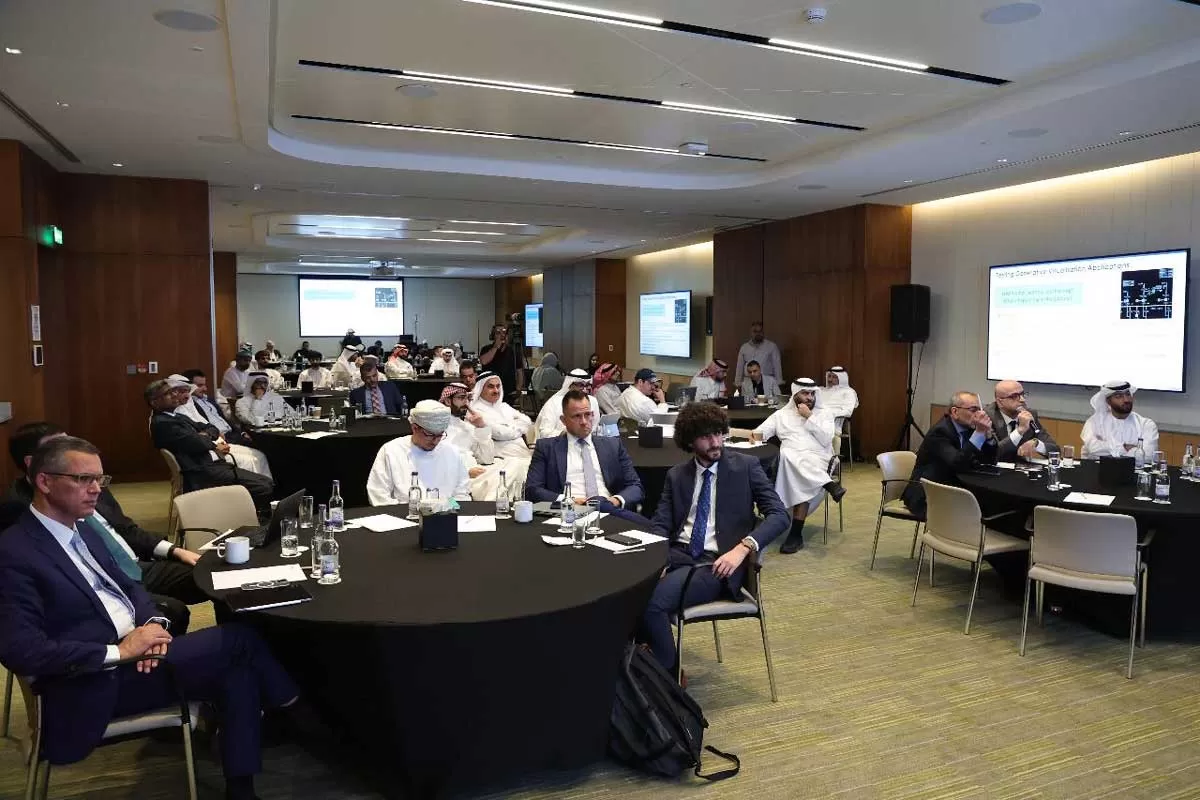The Gulf Cooperation Council Interconnection Authority (GCCIA), concluded its two-day regional forum held on April 29–30, 2025, under the theme, “Empowering the Future Grid: Exploring the Application of Generative AI in GCC Power Systems,” which took place in Kuwait City. The event brought together a distinguished group of global technology leaders, including GCCIA, the Saudi Electricity Company, ENOWA (NEOM’s Energy and Water Company), GCC energy authorities and utilities, as well as Microsoft, NVIDIA, Oracle, and EPRI Gulf (Electric Power Research Institute), alongside representatives from GCC member states, speakers from major global tech firms, and energy sector experts from across the Gulf region.
The first day of the forum featured intensive technical discussions on the transformative potential of generative AI in grid planning, operational optimisation, and data-driven asset management. Sessions showcased global AI models and platforms such as Copilot, Open Power AI, digital twins, and GPU-accelerated computing, all aimed at accelerating complex analytics and improving the responsiveness of power networks.
Discussions focused on real-world applications of generative AI in grid planning, operations, cybersecurity, and asset management. The forum also introduced the Open Power AI Consortium (OPAI), a global initiative launched by EPRI to foster cross-sector collaboration in developing, testing, and validating AI models for the energy sector. With over 40 members from the U.S., Europe, the Gulf and other utilities and technology companies, OPAI represents a unified effort to accelerate the digital transformation of power systems worldwide.
On the second day, the forum shifted focus to the real-world implementation of these technologies within operational utility environments. Participants explored practical applications such as integrating AI copilots into daily workflows, detecting electric vehicle usage patterns, identifying billing anomalies, and conducting real-time sentiment analysis for customer service—all while maintaining full data privacy through internally deployed AI models.
Further discussions addressed the reliability of AI models, the efficiency of GPU-based computing, and long-term planning using climate data. Attendees called for environmentally aligned adoption strategies and clear performance indicators to monitor AI impact and ensure its sustainability across power systems.
In his remarks, Eng. Ahmed Al Ebrahim, CEO of GCCIA stated, “We are gathered at a time when the energy sector is evolving into a more intelligent and complex ecosystem. We must reimagine our power grids as dynamic, integrated platforms. Generative AI is no longer a luxury—it is a strategic imperative that enables us to build more agile, efficient, and intelligent power systems. It opens up new frontiers for regional integration, global interconnection, loss reduction, and operational excellence.”
He added, “This forum marks only the beginning of a collective journey. Our goal is to translate technological potential into tangible operational solutions. By fostering deep collaboration between utilities and tech innovators, we can advance from pilot initiatives to fully autonomous grid operations and maintenance. The road ahead is wide open, and the possibilities for AI in the energy sector are limitless.”
Throughout the forum, Gulf energy utility representatives engaged in constructive dialogue, sharing case studies that demonstrated measurable improvements in grid efficiency and technical loss reduction enabled by AI. Insights were also drawn from global lessons, including findings that only 35% of organisations feel confident in their infrastructure’s readiness to support AI—underscoring the importance of strategic planning and smart investment in digital capabilities.
Electricity losses in GCC transmission and distribution networks remain among the lowest globally—just around 5%—positioning the region as an ideal testing ground for strategic AI integration aimed at boosting system reliability, performance, and energy management.
Through this forum, GCCIA reaffirmed its commitment to leading digital transformation efforts in the power sector, strengthening regional cooperation, and building a smarter, more sustainable and efficient energy future—cementing the GCC’s position as a global model for advanced power systems.





















